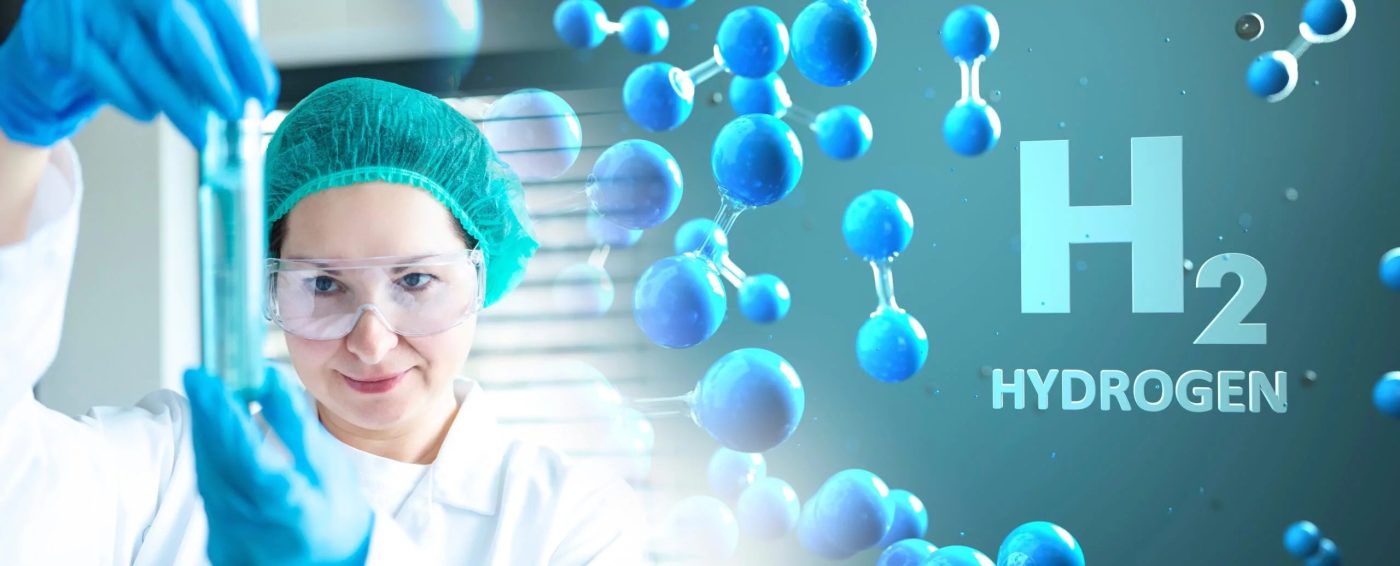Mass spectrometry (MS) is ever-present in gas analysis. It is a go-to solution for precisely identifying and quantifying gas components. MS works by ionizing gas molecules and separating the resultant charged particles by their mass-to-charge ratios (m/z) in an electric or magnetic field. This allows for the detection of even trace substances with outstanding sensitivity and specificity. Mass spectrometry’s ability to provide detailed molecular information makes it indispensable for accurate gas analysis across the entire spectrum of research and industrial applications.
It is beneficial to briefly recap the principles of mass spectrometry in gas analysis before delving into specific applications. Mass spectrometry involves three main components:
- Ion Source: Generates gaseous ions from the sample.
- Analyzer: Separates ions based on their mass-to-charge ratio.
- Detector: Quantifies the ions, allowing for the analysis of the gas composition.
This setup efficiently ionizes gas molecules and separates ions by their m/z ratios, enabling rapid and precise identification and the quantification of gases. This capability detects even trace components with high sensitivity and specificity in complex mixtures. Here, we will explore two specific applications of mass spectrometry in gas analysis: real-time gas analysis and gas chromatography-mass spectrometry (GC-MS).
How is Mass Spectrometry Used?
Real-Time Gas Analysis
Real-time gas analysis offers continuous monitoring and analysis of gases and vapours. It provides constant qualitative and quantitative data on chemical concentrations and the formation of new species in active reactions. With response times of up to 650 measurements per second, this technology is crucial for studying rapid reactions and sudden changes in gas composition. Its high sensitivity and capability of detecting concentrations in the parts per billion (PPB) range makes it ideal for monitoring low analyte concentrations.
Real-time gas analysis can simultaneously monitor various gases, including hydrogen, helium, methane, carbon dioxide, and dissolved gases, enhancing its versatility. This technique’s applications span across:
- Biotech
- Atmospheric monitoring
- Catalyst efficiency studies
- Chemical synthesis
- The petrochemical industry
- Environmental monitoring
- Fuel cell gas purity analysis.
Its benefits are also extensive, including:
- Reduced downtime
- Increased productivity
- Enhanced throughput
- Improved safety
- Cost-efficiency.
Data visualization tools offer live views of gas compositions, enabling immediate adjustments. Moreover, the real-time gas analyzers’ versatility allows them to handle diverse sample types. It also helps with integrating into multiple reaction chambers or process streams. User-friendly interfaces ensure ease of use with minimal training required.
Overall, real-time gas analysis surpasses traditional methods, enabling quick decision-making, optimized reactions, and stringent quality control and safety.
Gas Chromatography-Mass Spectrometry
Gas Chromatography-Mass Spectrometry is a hybrid analytical technique that combines the capabilities of gas chromatography (GC) and mass spectrometry (MS) to identify and quantify compounds, such as volatile organic compounds or ones found from a gas phase, within a sample.
In the GC component, a sample is vaporized and carried by an inert gas through a chromatographic column. This column is coated with a stationary phase that interacts with the sample’s compounds. As the sample moves through the column, different compounds separate. This is based on their interactions with the stationary phase and their boiling points. They each exit the column at different times. These are known as retention times.
Upon elution from the gas chromatography column, the compounds enter the mass spectrometer. In the mass spectrometry component, these compounds are ionized, typically through electron ionization, creating charged fragments. These ions are then separated based on their mass-to-charge ratios (m/z) in a mass analyzer. The resulting mass spectrum provides a unique fingerprint for each compound, facilitating their identification and quantification.
Integrating GC and MS allows for the separation of compounds by gas chromatography and their identification by mass spectrometry. The GC component ensures the effective separation of compounds before they enter the mass spectrometer, enhancing the analysis’ accuracy and reliability. A mass spectrometer then provides comprehensive information on the molecular structure and quantity of the compounds.
Gas Chromatography-Mass Spectrometry is extensively used in fields such as:
- Environmental monitoring
- Food safety
- Pharmaceuticals
- Forensic science
- Petrochemical analysis.
The application of Gas Chromatography-Mass Spectrometry in these areas is due to its:
- High sensitivity
- Specificity
- Ability to analyze complex mixtures.
Essentially GC-MS analysis is best suited for high sensitivity, specificity, and detailed compositional analysis. However real-time gas analysis is ideal for immediate results, continuous monitoring, and portability. The choice between the two techniques depends on the need for detailed data versus rapid, on-site measurements.
At Reecotech, we offer a diverse range of mass spectrometry solutions, each custom-designed for specific gas analysis applications. With extensive experience spanning environmental monitoring, industrial process control, and advanced research in biotechnology and pharmaceuticals, we are confident in delivering continuous and accurate gas composition analysis. This capability ensures strict adherence to regulatory standards and the optimization of production processes.
If you are interested in our gas analysis mass spectrometry systems, please contact us at:
Reecotech Science and Technology Co., Ltd.
Email: info@reecotech.com.vn
Hotline: 0938 696 131 (Sales Department) / 0901 880 386 (Technical Service Department)

